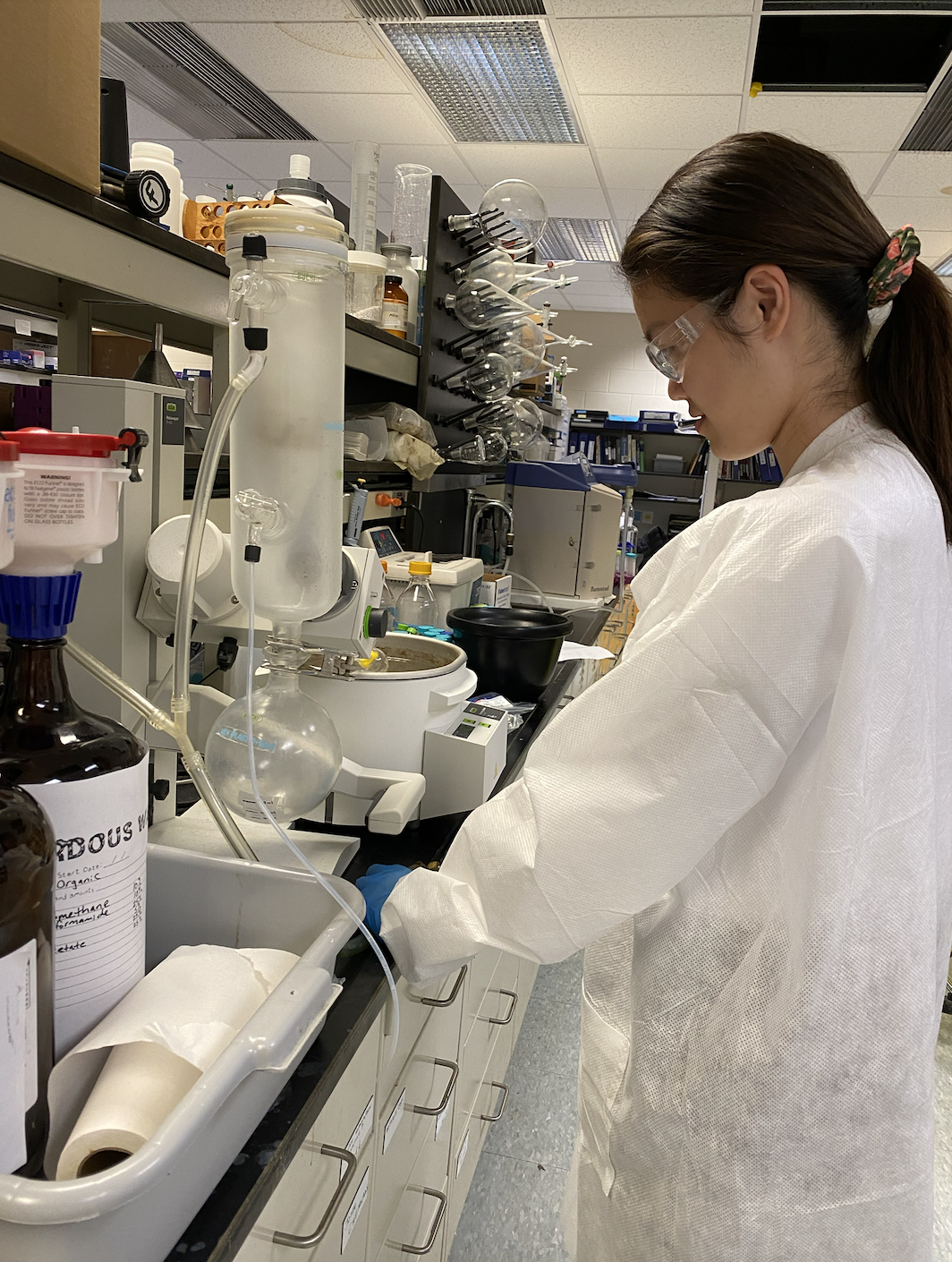Engineering & Social Sciences: Wenqi Di '25
Major(s) and minor(s)
B.S. in Biomedical Engineering; B.A. in Economics
Minor in Business
Pronouns
She/Her/Hers
Hometown
China
Areas of interest/focus in research
- Orthopedics and rehabilitation
- Synthetic Biology
- Machinery design
- Research on the New Energy Industry
Labs / departments / offsite programs where research was conducted
- Independent Research, Center for Musculoskeletal Research & Department of Biomedical Engineering - Guidance under Dr. Mark R. Buckley
- Independent Research, International Genetically Engineered Machine (iGEM), Synthetic Biology, Department of Biology - Guidance under Dr. Anne S. Meyer
- Financial Research on the New Energy Industry - McKinsey & Company
About me...
Hello! My name is Wenqi Di and I am a senior majoring in Biomedical Engineering with a business background from Jiangsu, China. I am a recipient of FLARE Grant Research Fund 2023 and Discover Grant 2022. I joined Buckley Lab during my freshman year working on designing experiments and developing models and CADing hardware to investigate the effects of soluble macromolecules on synthetic cartilage to external forces applied in situ. Also, I am one of the members of iGEM working on developing a parallel co-culture 3D bioprinting system to optimize the production of plant-derived chemicals.
How has your experience as a researcher influenced your career objectives?
For me, the greatest benefit of undergraduate research is the practical experience and the opportunity to actively contribute to the generation of new knowledge. It provided me with the opportunity to work closely with professors and the industry, gain insights into the research process, and hone critical thinking, problem-solving, and communication skills with minimal opportunity costs. Additionally, it will enhance my understanding of my chosen field (biomechanics and synthetic biology), further deepening my appreciation and enthusiasm for the subjects I study and I hope I can combine them in my graduate study in the future.
However, perhaps the most difficult aspect of undergraduate research is the inherent challenges and uncertainties that come with conducting original research. This may include encountering many unexpected failures, trying hard and adjusting the experimental design, or grappling with difficulties. Finally, balancing research commitments with coursework and other responsibilities can also be difficult and requires strong time management and organizational skills.
Campus organizations, programs, activities, clubs, awards/distinctions
I was a Schwartz Discover Grant Recipient, a teaching assistant for general physics, and Vice President of the Biomedical Engineering Society 2023. I performed traditional Chinese dancing of Diversity 2022 with the Phoenix Fire Group and I also represented the university attended the regatta in Syracuse in 2022 on the school sailing team. I also love machinery design and has been carrying out my own projects for mechanical fabrication.
Alpha Eta Mu Beta - National Biomedical Engineering Honor Society 2023
iGEM Gold Medal Winner, Best Biomanufacturing Nomination and Best Hardware Nomination (The third most-awarded team in North America)
Research Presentation Award 2023
2023 Impact Grant
FLARE Grant Research Fund Recipient 2023
1st Place (Undergraduate and Graduate Division) Medical Device Track in CMTI Biomedical Engineering Crea-A-Thon Spring 2023
Fellow: Discover Program 2022 & Schwartz Fellowship
Fun Fact: when I'm not doing research you can usually find me...
Outside of research, I also enjoy playing badminton, drawing, cycling, and dancing. You can always find me at the court and you are always welcome to join the game!
Areas where I may be particularly helpful
I can help prepare interview preparation, presentations, and Discover Grant/ iGEM applications and also help introduce students to some labs and give lab tours.
What advice do you have for prospective or new researchers?
The biggest thing undergrads need to know before jumping into research is that it’s a dynamic and often tough process. You need patience, curiosity, and the ability to see failure as a learning opportunity (trust me, I’ve failed so many times I lost track...ugh!). Research is super iterative—it’s all about tweaking methods, collecting data, and adjusting based on what works (or doesn't). Plus, time management is key since you have to juggle research, classes, and everything else going on. Good communication is also super important, both for writing up your findings and presenting them and don't forget to stay ethical throughout. Lastly, being open to collaboration and asking for help when you need it can really make a difference in how successful your research turns out.
Email me at: wdi2@u.rochester.edu

